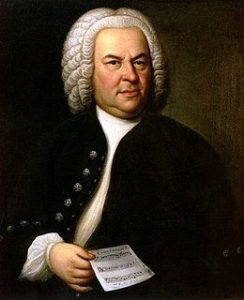Availability to a discipline’s origins, enables a disciple or follower of that discipline to internalize and efficiently wield knowledge provided through the origins—moreover, it allows them to understand the influences of the discipline and how it has developed. The use of archetypal work is useful across several disciplines; autochthonous material displays and presents excellent examples of fundamental techniques necessary in a discipline.

The disciples of music are one excellent example of individuals who learn their discipline effectively through the study of music and its history. Individuals who study music study not only the techniques involved in the analysis and composition of music, but also study the history, which presents the circumstances in which these techniques were developed, as well as how these techniques changed and developed as the study of music continued—simply studying the technique as it is today and neglecting its origins, would not allow someone to obtain an optimal and fuller understanding of how it developed or why it developed and limit their understanding of technique in music.
In the discipline of music, someone might specifically study the shift from monophonic Gregorian chants—Gregorian chant were sung chants the Catholic church practiced in their worship during the Medieval period; the chants were always monophonic which means they were only one line vocal melodies without the use of instrumental accompaniment—to the development of harmony and polyphony, which means multiple voices sung at the same time, and the changes that would arrive with the Renaissance or baroque era (Grout, et al, 2019). Just as disciples of music would study the origins of their discipline, so would the disciples of literature or a specific science. The concept of studying archetypal works can be applied to any discipline in order to obtain a more concentrated understanding of an idea or technique in that discipline—in literature, disciples study the history of literature, and focus on monumental influential authors in literature, just as disciples in music might study the music of Bach or Mozart.

I believe it is important in literature, specifically English literature, to study the origins of technique in Literature—including non-English works from other cultures, which have assisted in the development of literature as a whole. It is important to read older text like staples of literature which include: translated works by Euripides, a playwright who wrote several influential Greek tragedies, Shakespeare who created some of the most admired plays in western literature and transformed English theatre by expanding the use of plot and language, and Charles Dickens, an English novelist, who was one of the first authors to offer a look at the underclass and poverty-stricken individuals of Victorian London (Alex, 2011).
These works help us understand literary techniques in English and serve as examples of how to apply them; moreover, early works often show how individuals in literature have influenced modern literature—simply working on and studying these works would give an individual a greater understanding, which can be seen in Percival Everett rewrite of the Bacchae, where he builds on several ideas introduced in the Bacchae and executes them differently with slight alterations to the plot, like the inclusion of several other Greek myths. The implementation of Dionysus in Euripides’ The Bacchae, as a stranger or wanderer, is an excellent early example of a character motif seen in many pieces of literature. Disciples of literature, might even come to further appreciate literature by studying early works as well as rewrites of these pieces, like Percival Everett’s Bacchae rewrite: Frenzy; you can learn from both these archetypal pieces and in your, or another disciple’s, attempt to expand on the work.
The neglect of Archetypal work and the origins of a discipline would be catastrophic to development of literature. The continuous study of autochthonous or archetypical literature allows individuals who study a discipline to understand the development and structure of their discipline; it is a tool across all disciplines, which assist in the progress of modern literature—and the maintenance of literature as a culture—as we study these works and expand on the ideas they grant.
Bibliography
Hudson, Alex. “Charles Dickens: Six Things He Gave the Modern World.” BBC News, BBC, 15 Dec. 2011, www.bbc.com/news/magazine-16184487.
Grout, Donald Jay, et al. A History of Western Music. W. W. Norton, 2019.
“Euripides.” Biography.com, A&E Networks Television, 2 Apr. 2014, www.biography.com/people/euripides-9289335
Murfin, Ross C., and Supryia M. Ray. The Bedford Glossary of Critical and Literary Terms. Bedford/St. Martin’s, 2018.
“Home.” FAMOUS AUTHORS, www.famousauthors.org/charles-dickens.
“Test Your Composer Knowledge: Take Our Johann Sebastian Bach Quiz | WQXR | New York’s Classical Music Radio Station.” WQXR, www.wqxr.org/story/test-your-composer-knowledge-take-our-johann-sebastian-bach-quiz/.
